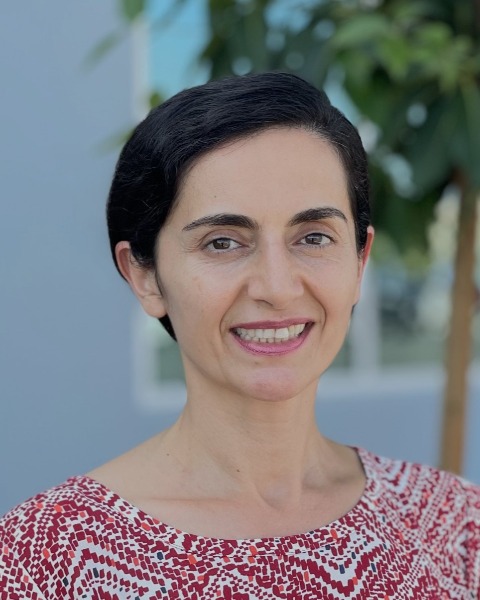Poster Presentation
Social Justice and Health Equity
Thursday Poster Power Hour
THURS-018 - Catalyzing Change: Building an Effective School Wellness Policy
Thursday, April 17, 2025
11:45 AM - 12:45 PM PST
Location: Pacific I/II, 2nd Floor
Area of Responsibility: Area III: Implementation
Subcompetencies: 3.2.5 Employ an appropriate variety of instructional methodologies. Employ an appropriate variety of instructional methodologies., 3.3.3 Modify interventions as needed to meet individual needs. Modify interventions as needed to meet individual needs.
Research or Practice: Practice
Subcompetencies: 3.2.5 Employ an appropriate variety of instructional methodologies. Employ an appropriate variety of instructional methodologies., 3.3.3 Modify interventions as needed to meet individual needs. Modify interventions as needed to meet individual needs.
Research or Practice: Practice

Maryam Shayegh, MPA, RDN
Nutrition and Wellness Coordinator
Los Angeles County Office of Education
Downey, California, United States
Poster Presenter(s)
Learning Objectives:
At the end of this session, participants will be able to:
- Upon completion, participants will be able to understand the importance of using a comprehensive and collaborative approach, such as the Whole School, Whole Community, Whole Child (WSCC) model to develop and implement Local School Wellness Policies (LSWP) to ensure compliance and effectiveness.
- The Whole School, Whole Community, Whole Child (WSCC) model is an effective methodology for the establishment, expansion, and implementation of Local School Wellness Policies (LSWPs). This comprehensive framework emphasizes the integration of health and wellness into all aspects of the school environment, addressing not just nutrition but also physical activity, mental health, and broader community involvement.
- County offices of education (COEs) are the only agencies that are uniquely positioned to provide educational and fiscal guidance to all school districts within their respective county. Due to their role as an education leader, COEs can be the lead agencies to successfully implement and support equitable and cost-effective population health programs to all LEAs without restrictions that are commonly related to grant-funded programs. By identifying COEs as the lead service provider at the county level, program development and implementation can be streamlined and better coordinated. Since COEs work closely with a variety of partners at the local, state, and federal levels, sustainable and impactful school system changes may be achieved using a collaborative, evidence-based whole-child approach.
Detailed abstract description: Schools serve as safe harbors for the next generation of learners. Research shows hunger and nutrition insecurity adversely affect students' cognitive and emotional well-being. This session will explore, amplify, and showcase how Local School Wellness Policies (LSWP) can be established and transformed and ultimately informed by alternative methodologies, modalities, and pedagogies. Best practices, successes, and tools will be shared to aid in replication or inspiration for other State agencies or Local Education Agencies (LEAs) looking to do the same. USDA will share the suite of resources and materials available through Team Nutrition to frame and support this process for students, caregivers, school staff, and leadership. Additionally, this information will provide vital context and set the stage. Lastly our panelists will their share work products, best practices, and strategies for replication and inspiration. Ultimately, this session will provide State agencies and LEAs a strong jumping off point, next steps, and context in creating an inclusive, dynamic, and equitable LSWP. The field of nutrition education and healthy school environment through policy, systems, and environment will benefit from a direct, tangible account of using LSWP. The next generation of Americans will benefit from this important work.
